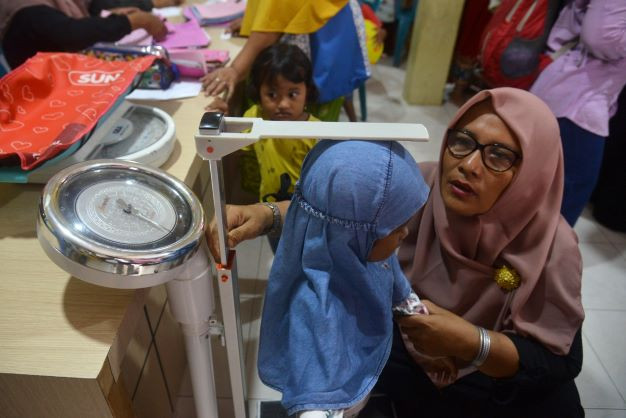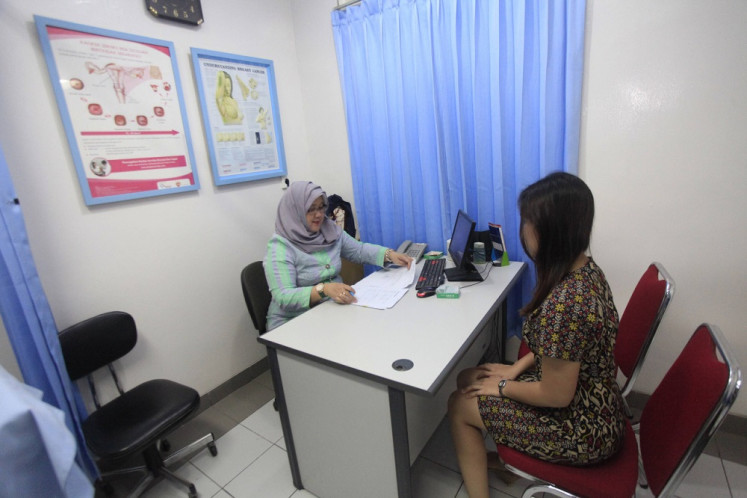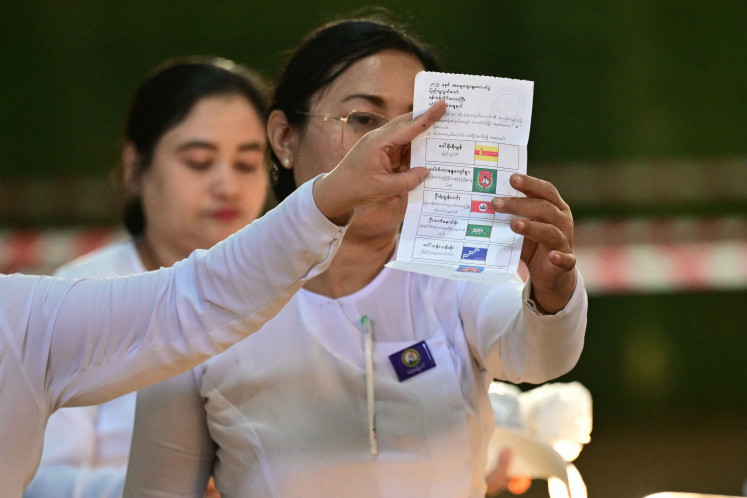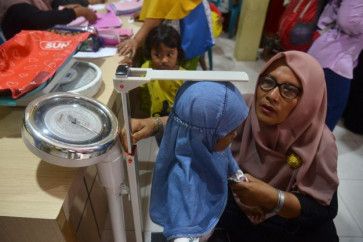Popular Reads
Top Results
Can't find what you're looking for?
View all search resultsPopular Reads
Top Results
Can't find what you're looking for?
View all search resultsWorking together to improve children’s dietary diversity
As with the health system, Indonesia’s education system shows disparities across geographic regions, gender and economic status, particularly at the secondary and tertiary levels.
Change text size
Gift Premium Articles
to Anyone
T
he government has committed to reducing the prevalence of stunting in children to below 14 percent by 2024. This is a welcome focus of the government’s health agenda given the official data that found one in four children aged below five is stunted.
Stunting is recognised as impacting physical, health and developmental capacities and remains a significant public health problem in developing countries such as Indonesia. Nutrition-specific interventions are key to reducing the risks, including a diversified diet.
But the reality is that many Indonesian children are falling behind on this measure, with the problem magnified among disadvantaged families.
The World Health Organization (WHO) suggests all infants and young children meet minimum dietary diversity (MDD) targets which include the daily consumption of at least five out of the eight food groups: grains, roots and tubers, legumes and nuts, dairy products, flesh foods such as meat or fish, eggs, vitamin A-rich fruits and vegetables, other fruits and vegetables and breastmilk.
In Indonesia, however, data suggests that only half of infants and young children eat a diversified diet. Based on a review of Indonesia Demographic and Health Surveys between 2007 and 2017, which I led, infants aged up to six months only consumed two to three types of food groups per day.
Dietary diversity appeared to increase with age; on average, children ate four food groups after nine months and five food groups after 18 months. However, the overall food intake is dominated by grains, roots and tubers and less than 60 percent of children consumed flesh foods and eggs. This is concerning, as animal-source foods are critical to reducing the risk of undernutrition, particularly among children in poorer households.
Dietary diversity is also impacted by inequality, with children from socioeconomically disadvantaged backgrounds in Indonesia more likely to eat a less varied diet. Mothers in these households often have a low level of education, including inadequate dietary knowledge, health literacy or nutrition information-seeking behavior, which impacts dietary diversity outcomes.



















